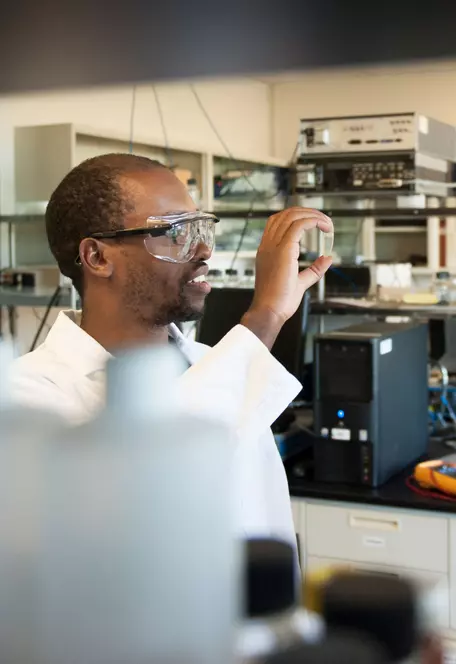Teaching Sustainability in Chemistry

Sustainability issues are inherently interdisciplinary. See the Resources & Discussions page for resources that span multiple disciplines and the Disciplinary Perspectives pages.
Exploring Sustainability through Chemistry
- Atmosphere (pollution, greenhouse gasses)
- Water
- Plants and Soils (directly effecting food)
- Energy solutions
- Toxicity
- Pharmaceuticals
Sustainability and Chemistry for the Undergraduate Curriculum
Sustainability can be addressed in many different types of courses, from Chem 101 to advanced graduate-level classes. Thus, there are many pathways to introduce sustainability themes into a wide range of topics.
Activities
Drinking Water Quality: An Interdisciplinary Research Experience of Introductory Geology and Chemistry Classes
Climate Change: Carbon Dioxide Data Analysis
For more resources on teaching sustainability, see the other sections of this site (Teaching Activities, Resources, Beginner's Toolkit, Empowering Students, etc.) via the navigation choices at the top left of the page. Also see the SERC Sustainability Site Guide . This site guide contains annotated links to hundreds of teaching activities across many disciplines, course descriptions, visualizations, and articles compiled through a number of projects.
Textbooks
Chemistry in Context: Applying Chemistry to Society
Introductory non-majors textbook that introduces chemistry concepts through relevant societal topics. These topics include air quality, global warming, acid rain, and more. Developed by the American Chemical Society. Chemistry in Context: Applying Chemistry to Society American Chemical Society, 2011, McGraw-Hill Science/Engineering/Math.Chemistry for Changing Times
Undergraduate Chemistry textbook designed for a "liberal arts chemistry course". Chemical concepts are explored through relevant topics such as energy costs, food, alternative energy, and more. Chemistry For Changing Times Hill, John W. et. al., 2007, Prentice Hall, pp. 744.
K-12
Chem Matters: Demystifying Everyday Chemistry ChemMatters, American Chemical Society.
This magazine helps high school students find connections between chemistry and the world around them. The website also provides teacher's guides.
Chemists Teaching Sustainability

The Institute for Green Science, Carnegie Mellon University.
At Carnegie Mellon University, the Institute for Green Science (led by Terry Collins) is involved in researching and teaching issues of green chemistry, specifically: renewable energy, chemical feed stocks, polluting technologies. The education and ethics portion of the website includes an online course introduction to green chemistry as well as lectures from the institute.University of Scranton Green Chemistry
Organizations and Institutes with Additional Resources
ACS Green Chemistry Institute (more info)
The ACS Green Chemistry Institute aims to "enable the implementation of green chemistry and engineering throughout the global chemical enterprise". This institute provides professional development opportunities, grants and awards, networking opportunities, as well as teaching resources (including books, websites, and activities).Beyond Benign: Green Chemistry Education (more info)
Supports teaching chemistry through relevant societal issues. The organization focuses on K-12 curriculum and training, community outreach, and workforce development. Resources include high school Green Chemistry activities.


